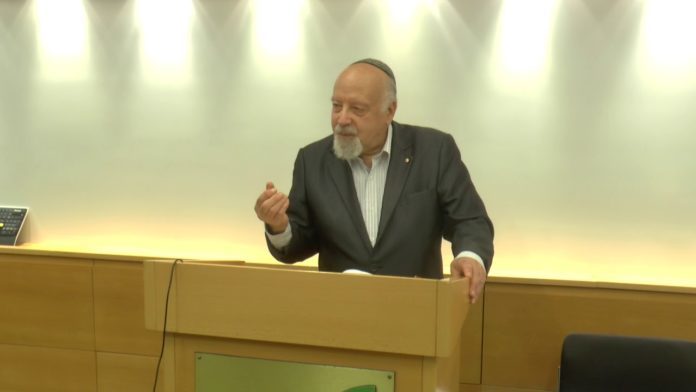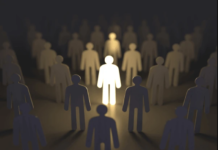
ABORTION
Q. Does Judaism permit abortions?
A. Judaism regards children as a blessing and procreation as a religious and moral obligation.
Through children, a couple cements their own relationship and ensure personal and cultural continuity. Through children, they enrich the world: who knows whether the child they bring to life may not become a Mozart or an Einstein?
To deny a child the opportunity to live and to take its place in the world is to impoverish the world. Abortion is, therefore, a vote against the future.
For a woman to claim the right to decide what will happen to her unborn child is the ultimate selfishness: it ignores the potential rights of the child. It is a mark of moral anarchy: has any human the right to assume God’s prerogative to permit or deny life?
Abortion on demand is therefore totally rejected by Judaism.
However, the unborn child is not yet a person in the full sense of the word. To destroy it is a grave moral offence but not homicide in the technical sense: Rabbi IJ Unterman, a former chief rabbi of Israel, called abortion an “appurtenance to murder”. This choice of words might be debatable, but it recognises the need for terminology capable of characterising abortion as a moral if not a legal wrong.
While Jewish sources agree that there is life in the foetus, it is not identical with the life that comes after birth. Abortion is, therefore, the destruction not of life but of potential life.
For Judaism this is not a theological issue involving the ensoulment of the embryo, which is deemed one of the “secrets of God”, but a technical problem of whether the foetus has an independent legal status.
The consequence is that in certain therapeutic circumstances Jewish teaching permits abortion.
The fundamental issue is a maternal risk. If there is a proven hazard to the mother’s life or health, including mental health, she has to be safeguarded even if this means destroying the foetus.
The mother has a manifest hold on life: her status is therefore certain in contradistinction to the foetus, which is not yet capable of independent living and may or may not prove to be viable.
Some but not all rabbinic authorities regard other genuine maternal needs as acceptable grounds for an abortion.
Likewise, a minority of rabbis allow abortion where there is a high probability of bearing a deformed child, but the majority reject this on the basis that a deformed or abnormal child has a claim to life and can become a useful and loved member of society.
A DYING PERSON’S RIGHT TO KNOW
Q. Do the dying have a right to know the truth about their condition?
A. Despite what others do or do not tell them, dying patients often have a reliable feeling about their condition.
But your question asks about a “right” to be informed, and the Jewish criterion is not the patient’s rights but their welfare.
Both truth and peace are fundamental Jewish ethical values, but there can be a time when the truth can affect peace, and truth might then not be an absolute requirement.
If the truth may negatively affect the patient and leave them in a state of despair that compromises their will to live, then in the interests of their peace of mind the full details about the seriousness of their condition may be withheld.
“The Medical Ethics Compendium” edited by Rabbi MD Tendler states (5th edition, page 53), “Patients suffering from a fatal illness should not be so informed where there is a reasonable indication that such knowledge may further impair their physical or mental health… The patient should be made aware that he is seriously ill but that there is every expectation that he will be healed. Thus the patient, whose intellectual and religious background requires that he ‘set his house in order’, will be forewarned to do so without yielding to pessimism or hopelessness.”
Two additional points need to be made:
One – no matter how hopeless the doctors think the case is, they must never give up on a patient. When the Torah says, “v’rappo y’rappeh” – “He shall surely heal” (Ex. 21:19), this obligation continues to the patient’s last breath. A Chassidic teacher refused to pray for one of his followers whose doctor had told him there was no hope; the rabbi said, “The doctor’s duty is to heal, not to despair”.
Second – it is unwise for doctors to predict how long the patient still has to live. As Rabbi Tendler says, “such estimates are usually destructive of the defence energies of the patient and his family”, as well as generally being unreliable.
If on balance it is considered appropriate to give the patient the full facts of his/her condition, the decision has to be made by doctors and family in consultation, and together they should work out how to convey the news.
Unfortunately, it sometimes happens that a doctor gives a patient an unpleasant message in a brusque, brutal way which further undermines the patient’s morale. Giving bad news is one of the hardest things for any doctor to do, and it calls for sensitivity and tact.
IGNORING YOUR CHILD
Q. Recently I read “The Chosen” by Chaim Potok. Is it true that some Chassidic fathers deliberately ignore their children?
A. There are many types of Chassidim – some of them quite jolly, others rather sombre – but I am not certain that Potok is claiming this as a Chassidic practice, just that a certain fictional father acted in this way.
He might have known a father of this kind, but readers should not generalise from a possibly lone example.
The general Chassidic approach is quite different. They enjoy their children and their family life is warm and exciting – and parents and children certainly talk to one another.
Some people who have no sympathy with Chassidism have a rather dangerous attitude that anything and everything can be blamed on Chassidim.
By Rabbi Raymond Apple
Rabbi Raymond Apple was for many years Australia’s highest profile rabbi and the leading spokesman on Jewish religious issues. After serving congregations in London, Rabbi Apple was chief minister of the Great Synagogue, Sydney, for 32 years. He also held many public roles, particularly in the fields of chaplaincy, interfaith dialogue and Freemasonry, and is the recipient of several national and civic honours. Now retired, he lives in Jerusalem and blogs at http://www.oztorah.com









